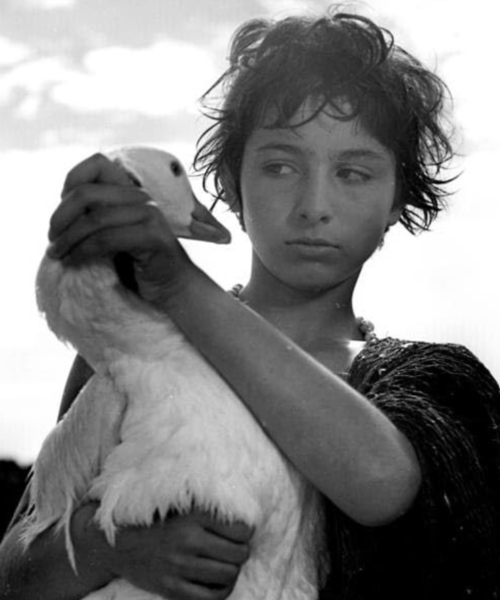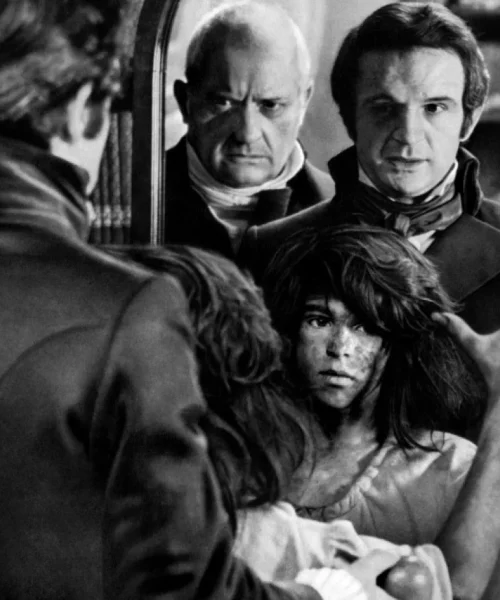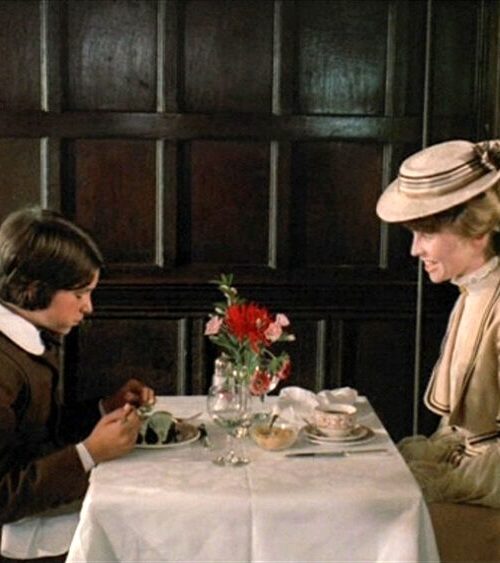In a cinematic landscape dominated by special effects and intricate plots, the 2007 film “Juno” stands out for its disarming sincerity. Masterfully directed by Jason Reitman and brilliantly scripted by Diablo Cody, the film champions delicate themes, tackling them with an innate lightness that doesn’t undermine their depth.
Ellen Page, portraying the young Juno, embodies the quintessence of a teenager grappling with adult decisions. Her unexpected pregnancy becomes not just a reflection on the uncertainty of youth, but also a commentary on the current social condition of teenagers. Juno’s choice to continue her pregnancy and give the baby up for adoption is treated without judgment, highlighting the complexity of personal choices in a social context that often preaches but rarely understands.
The portrayal of motherhood is approached with feminine sensitivity: not only through the young protagonist, but also through the character of Vanessa, played by Jennifer Garner, a woman yearning for motherhood in a world where the perfect image of a mother often clashes with reality. The dynamic between Juno and Vanessa represents the contrast between two phases of female life, both dealing with social expectations and pressures.
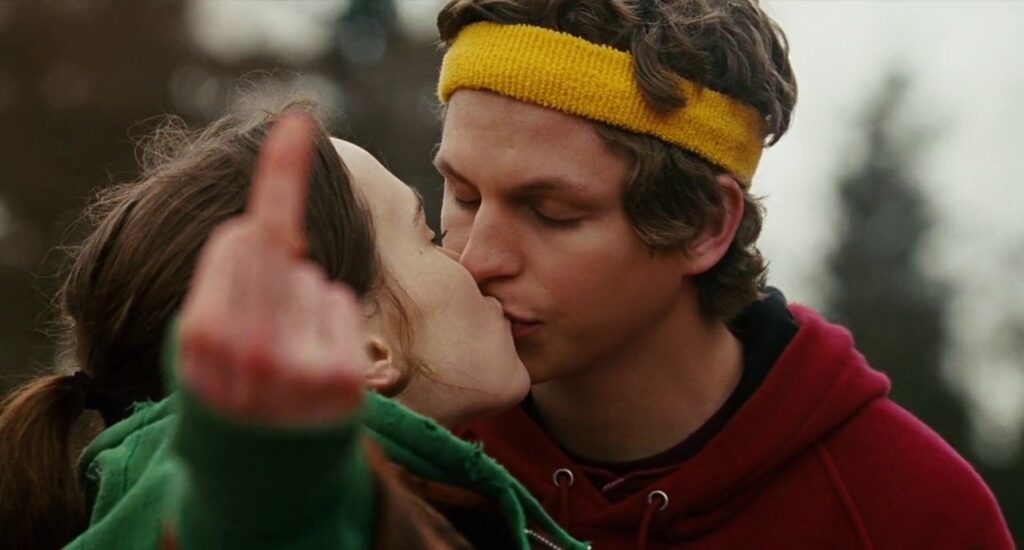
What makes “Juno” a masterpiece is not just its captivating plot, but its ability to blend film criticism with social sensitivity. In an era where the issue of women’s choice over their own bodies is at the forefront of debate, the film offers a humanizing perspective, showing that behind every decision lie unique stories, emotions, and circumstances.
“Juno” is more than a film; it’s an open dialogue with society, a lesson in empathy, and a reminder that beyond labels and expectations, there are real people with real stories, deserving to be heard and understood.
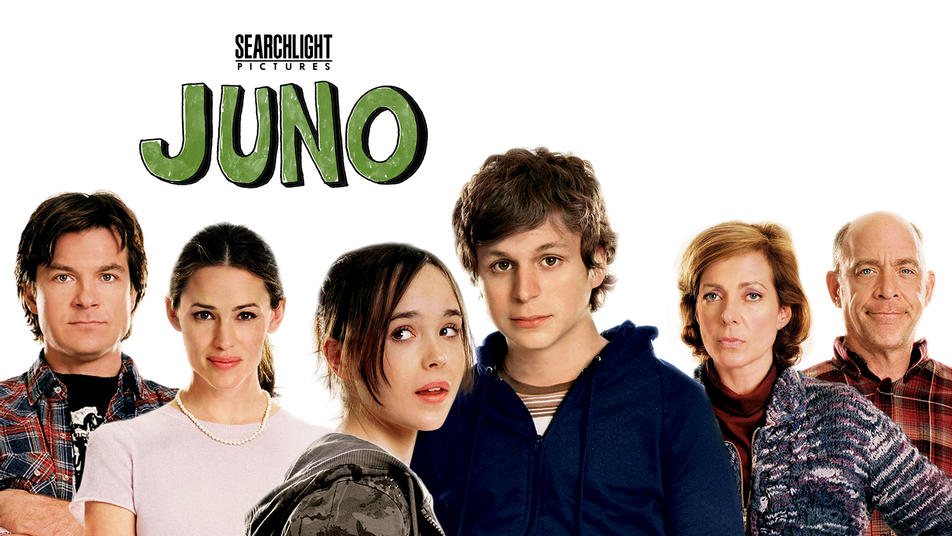
The Plot
Juno MacGuff, a smart, sarcastic 16-year-old girl living in a small town, discovers she’s pregnant following a single intimate encounter with her shy best friend, Paulie Bleeker. Initially, she visits a clinic to abort, but after a moment of reflection in the waiting room, she decides to continue with the pregnancy.
Supported by her friend Leah and understanding parents, Juno begins searching for a suitable couple to adopt her baby. She chooses Vanessa and Mark Loring, a well-off nearby couple longing for a child.
As the pregnancy progresses, Juno develops a sort of friendship with Mark, a failed musician dissatisfied with his marriage and life. While Juno and Mark share musical and cinematic interests, it becomes clear he’s not entirely ready to be a father. Conversely, Vanessa deeply desires motherhood but worries about her husband’s uncertainties.
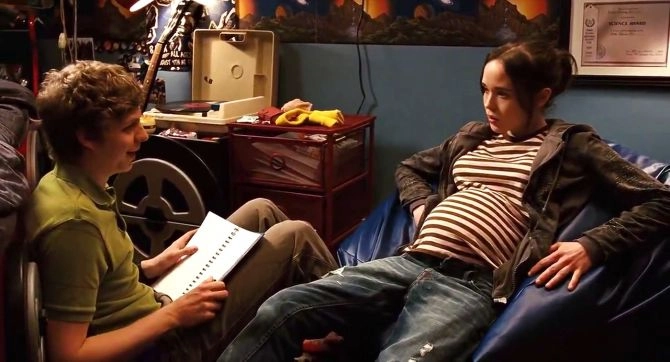
Meanwhile, Juno’s relationship with Paulie becomes strained due to the pregnancy, but he proves supportive, especially as the birth approaches.
The film culminates with Juno’s delivery and Vanessa’s decision to proceed with the adoption as a single mother, as she and Mark decide to divorce. Juno and Paulie reconcile, and the story concludes with them playing guitar and singing together, while the baby starts a new life with Vanessa.
“Juno” addresses teenage pregnancy with sensitivity, humor, and realism, exploring the complex emotions and decisions involved.
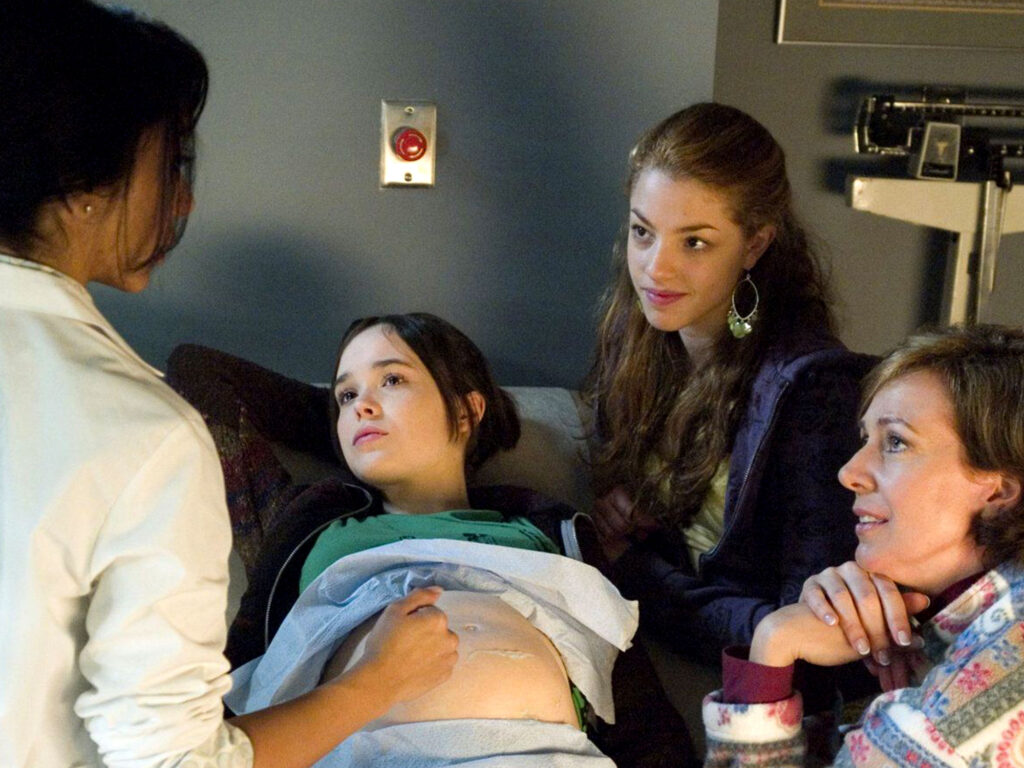
Strengths of "Juno"
Three-Dimensional Characters: In a film industry where teenage characters are often depicted as two-dimensional stereotypes, “Juno” stands out for its authentic and three-dimensional portrayal of a young woman facing a difficult decision. The complexity of Juno, Paulie, Vanessa, and even Mark allows viewers to empathize with each of them, understanding their fears, hopes, and desires.
Sharp and Witty Dialogue: Diablo Cody’s script is one of the film’s main strengths. Her use of fresh, original, and often sarcastic language makes “Juno” as entertaining as it is deep. Cody’s ability to mix humor with gravity in a single dialogue makes each scene memorable.
Engaging Music: The film’s soundtrack, ranging from folk to alternative rock, perfectly mirrors the mood and soul of “Juno”. Each track seems to have been carefully chosen to amplify the emotions of the scenes in which it is used.
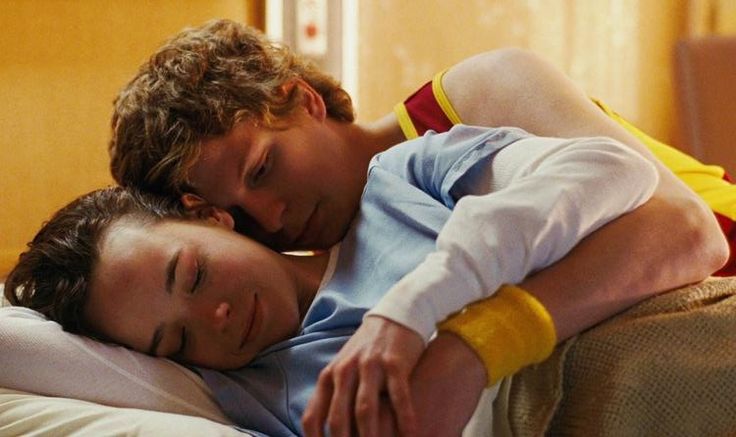
Respectful Treatment of Teenage Pregnancy: Rather than falling into the trap of moralizing or excessively romanticizing teenage pregnancy, “Juno” offers a balanced portrayal that highlights both the challenges and the bittersweet moments.
Universal Themes: Despite its focus on teenage pregnancy, “Juno” addresses universal themes such as love, friendship, growth, and self-discovery. This makes the film relevant not just for teenagers, but for audiences of all ages.
Unique Aesthetic: The use of stylized animations in the opening sequences, along with a palette of warm colors and production design, gives “Juno” a distinctive visual identity. This aesthetic, combined with the narrative, creates a nostalgic feeling, yet remains fresh and modern.

Another revolutionary aspect of “Juno” is its positive and non-judgmental portrayal of young women’s sexual awareness and desires. In an era where female sexuality is often highlighted or misunderstood, “Juno” dispels the myth that sexual awareness is an exclusively male privilege, showcasing a girl with sexual desires similar to those of her male peers.
And then, there’s that final scene. A poetic sequence where Juno and Paulie, sitting in front of the house, perform a duet with their guitars. In such an intimate and profound moment, Reitman doesn’t miss the chance to infuse his typical light tone, as the protagonist’s thoughts whimsically shift to what’s happening in the shorts of the athletes running by. It’s a finale perfectly in line with the essence of the film: a mix of depth and lightness, reflection and laughter. “Juno” is more than a film; it’s an open dialogue with society, a lesson in empathy, and a reminder that beyond labels and expectations, there are real people with real stories, deserving to be heard and understood.
“Juno” is not just a film about adolescence or pregnancy. It’s a cinematic artwork that explores the complexity of the human condition, showing how difficult decisions can lead to personal growth and self-understanding. Through its balance of humor, heart, and realism, “Juno” remains one of the most iconic films of its genre, resonating with audiences long after the credits roll.







